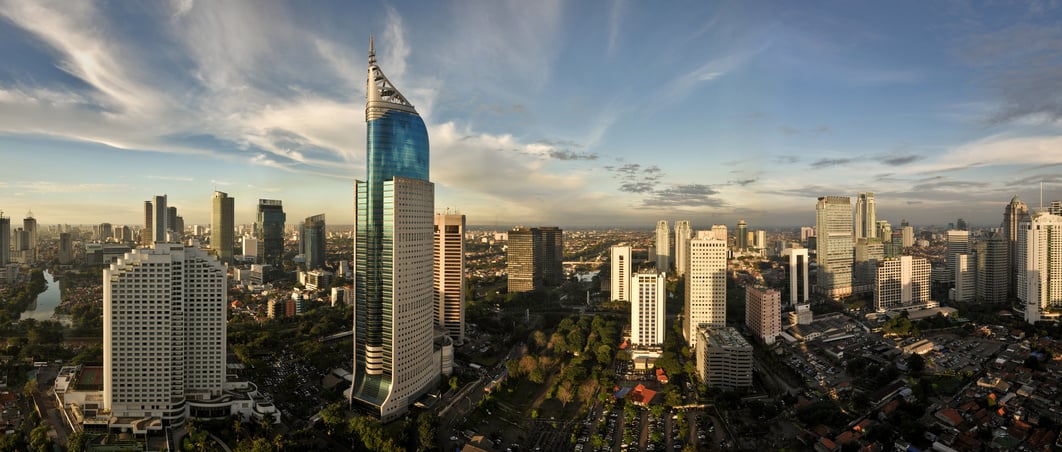In brief
The Indonesian government has been pushing the development of Battery Electric Vehicles (“BEV“) and related infrastructure with a view to having low carbon emission vehicles account for at least one fifth of all domestically manufactured vehicles by 2025.
A key milestone in the development of BEV and its related infrastructure in Indonesia was the issuance of Presidential Regulation No. 55 of 2019 on the Acceleration of Battery Electric Vehicles for Road Transportation Program (“PR 55“). PR 55, which was issued in August 2019, is the umbrella regulation for BEV development in Indonesia (please see our previous Client Alert).
New implementing regulation – what does it do?
On 4 August 2020, the Minister of Energy and Mineral Resources (“MEMR“) issued Regulation No. 13 of 2020 on the Provision of Charging Infrastructure For Battery Electric Vehicles (“Reg 13“). Reg 13, which came into force on 7 August, is one of the implementing regulations for PR 55 and sets out: who can engage in the charging infrastructure business; the different charging infrastructure business models; the applicable electricity tariff; and technical and safety requirements.
Contents
Key Provisions
BEV charging infrastructure
Reg 13 identifies two broad types of BEV infrastructure:
- charging facilities, i.e.,:
- Private Electricity Installations – private charging facilities for own-use (either for public or non-public transportation). These installations cannot be used to sell electricity.
- Public Electricity Charging Stations (Stasiun Pengisian Kendaraan Listrik Umum or “SPKLU“) – charging facilities that may be used to supply (and sell) electricty for BEV to the public. SPKLU will be located in petrol stations (SPBU and SPBG), central and regional government offices, malls, and roadside public parking lots. SPKLU may also be located in other areas, so long as they meet certain criteria (such as being reachable by BEV owners and having dedicated parking spaces).
- Battery exchange stations.
Public Electricity Battery Exchange Stations (Stasiun Penukaran Baterai Kendaraan Listrik Umum or “SPBKLU“), enable members of the public to rent batteries and exchange them when they run out. Similar with charging facilities, exchange stations will be located within petrol stations (SPBU and SPBG), central and regional government offices, malls, and roadside public parking lots, or other locations meeting the relevant criteria.
Who can engage in the charging infrastructure business?
- PLN – Reg 13 initially assigns the provision of charging facilities infrastructure (which includes SPKLU and SPBKLU) to PT PLN, which in turn can cooperate with other state-owned enterprises or other business entities in accordance with the prevailing laws and regulations.
- SPKLU business entities – Reg 13 further clarifies that other than PLN, SPKLU may also be provided by business entities that:
- hold either:
- an Integrated Electricity Supply Business License (“Integrated IUPTL“) or
- an Electricity Supply Business License for Sales (“Sales IUPTL“); and
- have a business area (wilayah usaha) covering the relevant location. The business entities are required to hold SPKLUs in more than one province in Indonesia.
- hold either:
Further, the business entities must also obtain an SPKLU identity number for each SPKLU. They can apply for this identity number from the MEMR, through the Director General of Electricity.
- SPBKLU business entities – Other than PLN, Battery Exchange Stations/SPBKLU may also be provided by private business entities. They are not required to hold an IUPTL, but Reg 13 requires that they hold the necessary license – we believe this should be a Trading Business License (Surat Izin Usaha Perdagangan or SIUP). Given general restrictions on PMA companies carrying out leasing activities, query whether this line of business will be open for foreign investment.
Similar with SPKLU, the business entities must also obtain an SPBKLU identity number for each SPBKLU by applying to the MEMR through the Director General of Electricity.
Charging infrastructure business models
Reg 13 introduces several business models for the provision of BEV charging infrastructure as follows:
Business models for SPKLU
- for business entities holding an Integrated IUPTL:
- provide, own, self-operate (“POSO”) scheme – the business entities own and operate an SPKLU, through which they will sell electricity;
- provide, own, privately operate (“POPO”) scheme – the business entities own an SPKLU, through which they sell electricity; however the SPKLU will be operated by another business entity holding an Operational Electricity Support Business License (Izin Usaha Jasa Penunjang Tenaga Listrik bidang pengoperasian or “Operational IUJPTL”);
- provide, privately own, operate (“PPOO”) scheme – the business entities provide and sell electricity through an SPKLU that is owned and operated by an Operational IUJPTL holder;
- provide, lease, self-operate (“PLSO”) scheme – the business entities will provide and sell electricity through an SPKLU operated by them, but leased from a third party;
- provide, lease, privately operate (“PLPO”) scheme – the business entities provide and sell electricity through an SPKLU that is leased from a partner and operated by an Operational IUJPTL holder.
- for business entities holding a Sales IUPTL:
- retail, own, self-operate (“ROSO”) scheme –business entities own and operate an SPKLU through which they sell electricity purchased from an Integrated IUPTL holder;
- retail, own, privately operate (“ROPO”) scheme – business entities owning an SPKLU purchase electricity from an Integrated IUPTL holder for onsale; however, the SPKLU is operated by an Operational IUJPTL holder;
- retail, privately own, operate (“RPOO”) scheme – business entities purchase electricity from an Integrated IUPTL holder and sell electricity through an SPKLU that is owned and operated by an Operational IUJPTL holder;
- retail, lease, self-operate (“RLSO”) scheme – business entities purchase electricity from an Integrated IUPTL holder and sell electricity through an SPKLU, operated by them, but leased from a third party;
- retail, lease, privately operate (“RLPO”) scheme – the business entities purchase electricity from an Integrated IUPTL holder and sell it through an SPKLU that is leased from a third party and operated by an Operational IUJPTL holder.
Business models for SPBKLU
- battery provider, cabinet owner (“BPCO”) scheme – the business entities own batteries to be rented to BEV owners and have battery swapping cabinets;
- battery provider, cabinet lessee (“BPCL”) scheme –the business entities own batteries to be rented to BEV owners, and lease battery swapping cabinets from third parties.
Electricity tariff
- Reg 13 provides that the electricity tariff applied for charging BEV is based on the prevailing laws and regulations on tariffs for electricity supplied by PT PLN. This would seem to suggest that the electricity tariff will be linked to the ‘standard’ consumer electricity tariff.
- For electricity from Integrated IUPTL holders to:
-
- owners of Private Electricity Installations
- business entities providing SPKLU
- business entities providing SPBKLU
the applicable tariff will be the electricity tariff for bulk sales (penjualan curah) multiplied by a ‘Q’ multiplier factor (ranging from 0.8 to two) determined by the Integrated IUPTL holders.
- For electricity from Integrated IUPTL holders to Private Electricity Installations (for non-public transportation) – the applicable tariff will be PLN’s standard electricity tariff depending on the category (e.g., residential area with certain installed capacity).
- For electricity from SPKLU to BEV owners, the applicable tariff will be the electricity tariff for special services multiplied by an ‘N’ multiplier factor (up to 1.5) determined by the IUPTL holders operating the SPKLU.
Conclusions
Reg 13 provides useful clarification as to how the Government sees this industry being rolled out. Given the variety of business structures and models contemplated by the regulation, the Government seems determined to encourage a wide variety of investors to enter into the market. It remains to be seen whether the pricing models set out in the regulation will be sufficient to attract significant investment. However, the regulation would seem to be a significant step in Indonesia’s desire to become a major player in the BEV industry.






